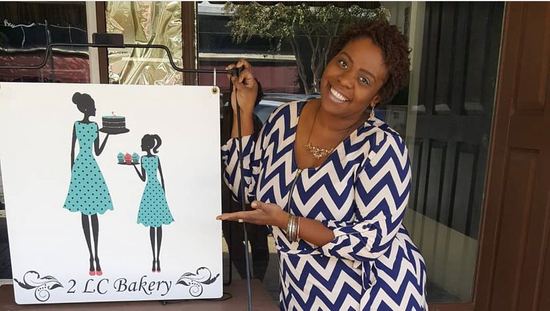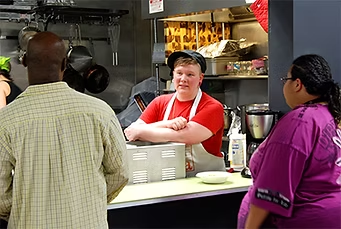FJC has applied its customizable operational platform to a new use case: facilitating foundation microloans to underserved small businesses that are taking advantage of a crowd-sourced lending program. This Loan Participation Fund vehicle was designed by FJC in partnership with Upstart Co-Lab, a non-profit that is disrupting how creativity is funded, and Honeycomb Credit, a first-of-its kind loan crowdfunding platform.
[Update: This initiative has been featured in Forbes: “Novel Approach Helps Foundations Make Crowdfunding Loans To Creative Economy Businesses” (May 31, 2022)]
Through the Loan Participation Fund, three foundations — the Jessie Ball duPont Fund, the A.L. Mailman Foundation, and Souls Grown Deep Foundation and Community Partnership — will invest $600,000 with Honeycomb Credit. The capital will be used to provide loans to small businesses in across the U.S. that have been underserved by traditional financial institutions. The foundations will participate alongside “the crowd”—small, local investors including family, friends, customers and other stakeholders.
The three investments have specific areas of focus. The capital from Souls Grown Deep and the A.L. Mailman Family Foundation will be invested in Black-owned businesses in nine southern states. The investment from the Jessie Ball duPont Fund will be directed toward entrepreneurs in seven Northeast Florida counties, prioritizing borrowers who are low-income, women or people of color.
“It’s great to work with a partner [like Honeycomb Credit] that can put our capabilities to work at the intersection of philanthropy, small business lending, and impact investing.”
Sam Marks, CEO, FJC
As of 2022, the average loan size on the Honeycomb Credit platform is $70,000. About half of the businesses on the platform were previously unable to access credit or were referred by a lender who declined to provide them a loan. To date, 46 percent of businesses financed through Honeycomb Credit have been in low-to-moderate income communities, 49 percent were woman-owned, and 24 percent were BIPOC-owned.
In the early stages of this initiative, all of the foundations had expressed concern about operational challenges about participating. The foundations agreed that providing loan capital to underserved small businesses fit their missions, but none of the foundations were set up to efficiently disburse loan capital in small $5,000 to $10,000 increments (as well as receive loan repayments). Upstart Co-Lab and Honeycomb Credit invited FJC to arrange Loan Participation Funds, a customized solution that provides efficient financial intermediation for any foundations participating in the initiative.
“We were thrilled to work with Honeycomb Credit to create fiduciary accounts that could make it easy for foundations to implement Loan Participation Funds,” said Sam Marks, CEO of FJC. “Our scaled operational platform has so many potential applications, and it’s great to work with a partner that can put our capabilities to work at the intersection of philanthropy, small business lending, and impact investing.”
“Large foundations tend to design their infrastructure around deploying capital in hundreds of thousands, even millions of dollars at a time — which is much more than any one small business needs,” said George Cook, CEO and co-founder of Honeycomb Credit. “The Loan Participation Fund bridges that gap, allowing foundations to write large checks but allocate the money to small businesses with the help of an intermediary. This way, big foundations can invest alongside the crowd at the scale that makes sense for helping local entrepreneurs grow their businesses.”
“We know how difficult it is for low-wealth entrepreneurs, especially those in under-invested communities, to access affordable loans. We are excited about promoting innovative online lending technology locally to unlock equitable and affordable capital.”
Mari Kuraishi, President of the Jessie Ball duPont Fund
Since 2017, Honeycomb Credit has channeled $11.3 million through more than 180 loan campaigns to businesses in 23 states and Washington, D.C. 80 percent of the businesses that have raised capital through the Honeycomb Credit platform are creative economy businesses such as local cafés, breweries, and fashion brands that create jobs and contribute to vibrant economic activity in their communities. After raising capital via a Honeycomb Credit campaign, businesses experienced an average 60 percent increase in revenue — in part thanks to the engagement that a Honeycomb campaign encourages by galvanizing local investors around businesses in their areas.
Small businesses with crowd-funding campaigns eligible for loan disbursements through the Loan Participation Funds include:
“We know how difficult it is for low-wealth entrepreneurs, especially those in under-invested communities, to access affordable loans – capital that allows them to grow and create sustainable wealth that raises up the entire community,” said Mari Kuraishi, President of the Jessie Ball duPont Fund. “We are excited about promoting innovative online lending technology locally to unlock equitable and affordable capital for Northeast Florida businesspeople who are currently only able to access high-interest lenders.”
“Since 2019, Souls Grown Deep has committed 100% of our endowment to impact investments, mobilizing our capital towards meaningful and mission-aligned opportunities in the arts and to fund Black-owned businesses, especially those in the southern United States. This new financial vehicle allows us to invest at scale in a substantial way for relevant small businesses, broadening our distributions while continuing to deepen our impact,” said Dr. Maxwell L. Anderson, president, Souls Grown Deep Foundation and Community Partnership.
The three participating foundations are part of Upstart Co-Lab’s community of impact investors with an interest in supporting the creative economy.
“We’ve been working with Honeycomb Credit to bring this new impact investment vehicle to the foundations we advise since the fall of 2020,” said Laura Callanan, founding partner of Upstart Co-Lab. “We’re thrilled to see this collaboration bear fruit, both in expanding what’s possible in the world of impact investing and in bringing much-needed financing to businesses in creative industries, which play a vital role in every thriving local economy.”




